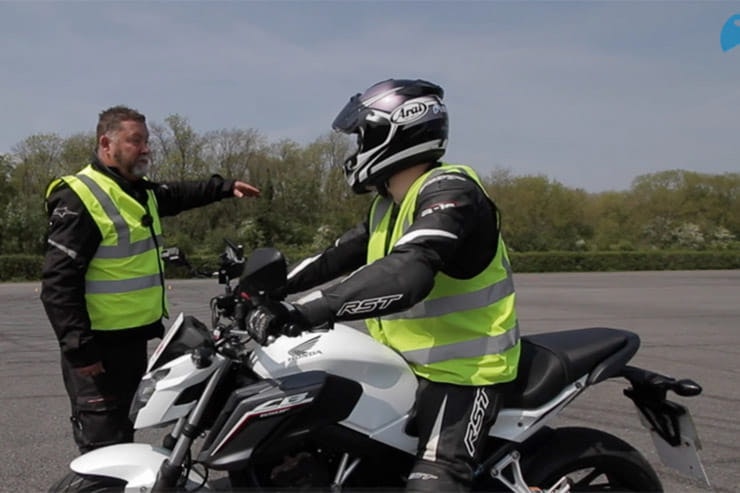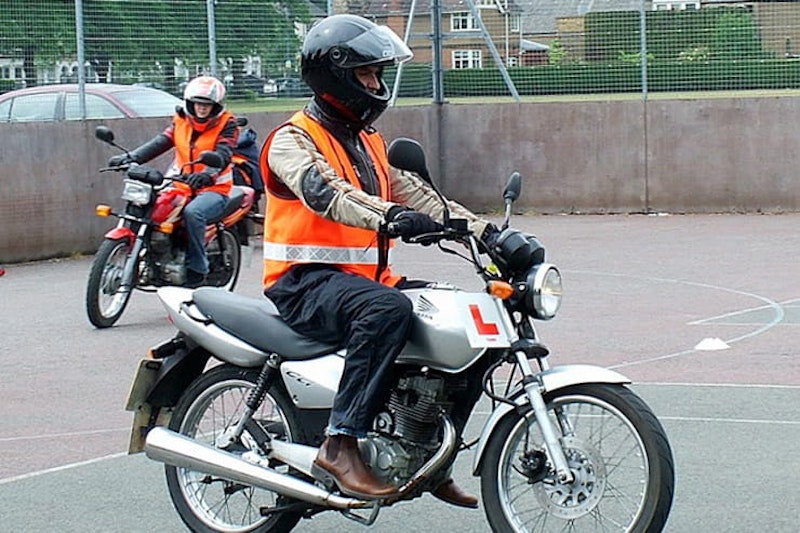Advanced training restarts but learners left waiting
By Ben Purvis
Motorcycle Journalist
19.06.2020
IAM RoadSmart has restarted its advanced motorcycle coaching in England and Northern Ireland this week as lockdown rules continue to be relaxed – but confusingly there’s still no sign of relaxing the restrictions on learner rider training and tests.
Some independent advanced instructors actually restarted lessons at the start of June, when rules were changed to allow groups of up to six people to meet outside, but IAM Roadsmart (formerly known simply as the Institute of Advanced Motorists) has long been a standard-bearer in the field and opted to reopen for business this week, coinciding with the reopening of non-essential shops. At the moment, the company is only offering courses in England and Northern Ireland, as lockdown rules in Wales and Scotland don’t currently allow social riding.
Richard Gladman, IAM RoadSmart’s Head of Driver and Rider Standards said: “We are delighted to be able to get those taking the advanced rider course back on the road.
“Our community of passionate and skilled bikers have made personal safety their number one priority by following the rules on social distancing and non-essential travel. They have been great ambassadors for motorcycling IAM RoadSmart and road safety.
“Our volunteer Observers and Examiners have been brushing up their skills over the last couple of weeks to make sure that when our Associates resume their coaching, they are doing so to the same high standards we always aspire to maintain.
“We continue to monitor announcements from Government and the devolved administrations carefully and update our guidelines accordingly."
IAM Roadsmart’s decision follows the publication of a detailed code of COVID-19 rider guidelines created by the ‘Coalition of Motorcycling Organisations’ – a group including IAM Roadsmart, the BMF, MAG, the ACU and others – to help riders comply with government rules on social distancing while still getting out on their bikes.
The Coalition says it has attempted to engage with the Government, but in the absence of official pronouncements on motorcycling it has set out to interpret the lockdown regulations and translate them into rider-specific advance.
Gladman explained: “As the COVID restrictions begin to relax it is important we remember how close we could be to further lockdown restrictions if the infection rate escalates. We as motorcyclists are duty bound to help in any way we can, the relaxation has allowed us to gather in small groups as long as we adhere to social distancing rules. The guidance document we have prepared helps with best practice and is intended to help us court the right sort of publicity. Motorcycles are a safe viable form of socially distanced transport but also a great support for mental wellbeing”
The Coalition’s COVID-19 Riders’ Safety Code reinforces the importance of social distancing and reminds riders that if they show any symptoms of COVID-19 they must stay at home and self-isolate.
It also lays out the following suggestions:
Plan your route carefully to avoid busy locations, traffic congestion and crowds.
You must only ride with a pillion or sidecar passenger if they are part of your household.
If you can, ride singly or as a pair. You must not travel in a group of more than six and, when you stop, you must make sure you stay sufficiently socially distanced from any who are not part of your household. For further advice on group riding, see below.
Aim to be as self-sufficient as possible by taking all food, refreshments and other essentials with you.
Agree in advance what you are going to do if you have problems. Agree, for example, how to deal safely with any breakdowns or emergencies.
Do not gather in large numbers with other motorcyclists (There will be time for that when the present crisis is over.)
Avoid cafes, but try to establish in advance where there will be essential facilities en route such as public conveniences.
Try to limit the number of stops you make and, wherever possible, stop in isolated places. Do not to stop or park in public car parks where you cannot be sure of maintaining adequate social distancing.
Know the COVID-19 safe procedures to follow at filling stations or shops. Try to limit the number of fuel stops you make.
Know what COVID-19 safety kit you are going to take with you, such as alcohol hand gel, masks, gloves, tissues, plastic bags etc. Use it appropriately and safely.
Make sure that your route is not so long and difficult that you cannot return home safely if things like the weather change suddenly. You must return home the same day.
Encourage other riders to be COVID-safe at all times.
Ride sensibly and with consideration for others.
Be aware that, at present, the guidelines for leaving the house for other than essential reasons may be different in Wales, Scotland and Northern Ireland.
Despite the freedom to ride for social and pleasure purposes under the current lockdown rules, and the restarting of advanced instruction, there’s still no change to the DVSA’s position on CBTs, learner rider instruction or motorcycle testing.
In an open letter sent to motorcycle training schools on Monday (15 June) the Chief Executive of the DVSA, Gareth Llewellyn, said: “Motorcycle training and tests will only restart when the government is confident that the assessment of risk warrants it, subject to the 5 tests and further detailed scientific advice.”
He went on to write: “In the meantime, I want to re-emphasise that you should continue to limit motorcycle training to critical workers – either those who need to take compulsory basic training (CBT), or those preparing for a motorcycle test.”
More encouragingly, he did confirm that work is underway to prepare for reopening of testing facilities, creating guidance for examiners, putting PPE in place and working out a system to reschedule tests that were cancelled due to lockdown, so that they’re ready to go as soon as the Government gives the green light. These preparations include things like testing for legionella bacteria in water systems at test centres that have been closed for the last 11 weeks, ordering face coverings and gloves and working to establish which examiners will be able to return to work, as any that are in the ‘clinically vulnerable’ category won’t initially be able to return.
He also explained that when learner restarts, it will be phased to reduce the burden on businesses.
Although there’s still no official position on when testing and training will restart, there’s a strong belief within the training industry that it’s likely to be in early July, with Monday 6th July widely mooted as a likely restart date provided measures to reduce coronavirus infections continue to work.
Share on social media:

